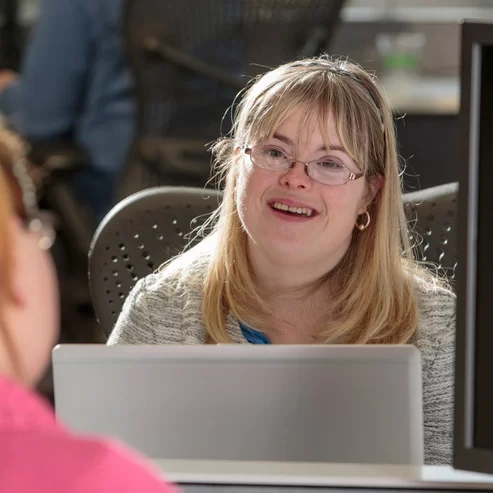“I’m sorry, but two hands are simply not enough to get the job done. You’ll need to adapt to a three handed environment.”
“If you are incapable of arriving at the precise square root of pi, then perhaps this job is not for you.”
“You lack the stamina for the twenty-four hour shift? You’ve got a serious issue.”
If the above sentences sound preposterous, it is because they most certainly are. There is not an employer in the world who should be demanding you transcend your humanity. However, how is it that many in the workforce with developmental disabilities are often asked to do just that? Individuals with ASD are reviewed based on their social skills, and those with dyslexia looked down upon because of their difficulties with reading. The result? The wonderful and unique talents and skills they bring to the table are often overlooked. Developmental disabilities take shape as an issue far beyond the disability itself, and become a source of social discomfort, discrimination, and even unemployment.
Developmental Disabilities At Work
An estimated one in six children in the USA are born with a developmental disability. Despite the often catastrophic approaches towards those with disabilities that stain our history books – including asylum and eugenics – the United States in the 21st century has gone to great lengths to adapt its educational system to those who function differently than the accepted “norm”. Adaptations to mainstream schools, and institutions for vocational training are but two examples. However, figures from the workforce would suggest that the world is not quite their oyster. Researchers estimate that unemployment among the developmentally disabled stretches beyond sixty percent, and those who are indeed employed complain of discrimination. While legal initiatives at the state level attempt to address these problems – and they succeed for some – there is a long way yet to go. Are we to deprive them of their potential, or our economy of their contributions?
The Hiring Process
Corporations across the business world have concluded that diversifying hiring practices opens up a broad range of talent that would otherwise go unnoticed and unhired. However, the best of intentions fail to approach the realm of action. One employer wonders how he can run a meeting for those who read social cues differently. Another cannot fathom how the presence of an individual with dyslexia will impact written communication. So the resumes go unread, the cover letters unappreciated, and the communications unanswered. Despite a world of good intentions, those with disabilities go unhired.
Breaking Stigma – Hiring Those With Disabilities
With a torrent of goodwill on both sides – those who suffer, and those who hire – it’s time to make this work. While we rethink our perception of disabilities, we can train ourselves to work with them. Not only do we stand as a firm with a strong track record of commitment to diversity, equity and inclusion, but perhaps more importantly – we are also parents of those with disabilities. At Shepherd Search Group and Merraine Social Services, we assist hiring officers with diversifying their interview process, onboarding those with disabilities, and efficiently integrating them into the company. It is our belief and that of our many satisfied clients that through respecting those who are different we can broaden our searches, and hire better. Instead of harming company efficiency, we can boost it. Instead of reinforcing social stigma, we can break it.
Together, we can make the workplace a place for everyone. After all, isn’t that what a Shepherd does best?

